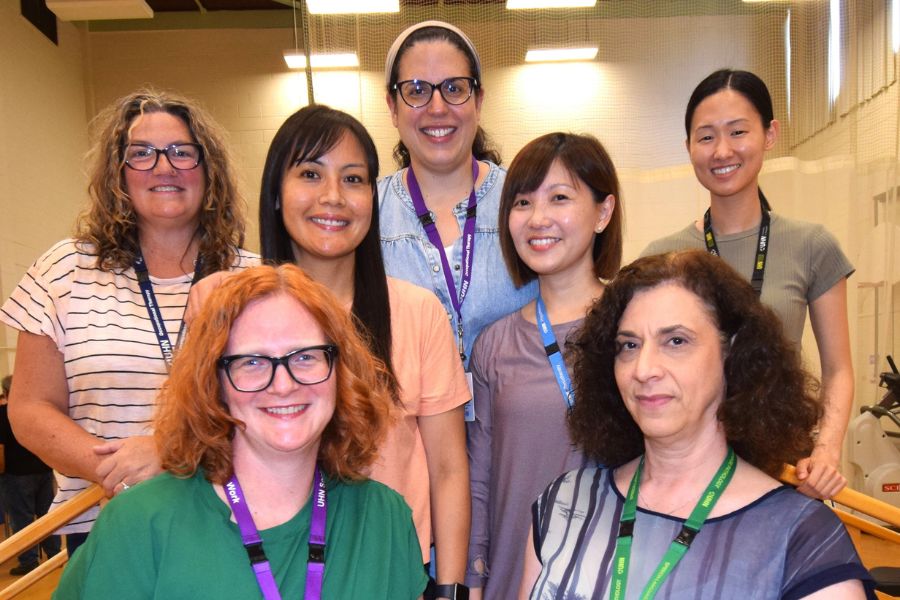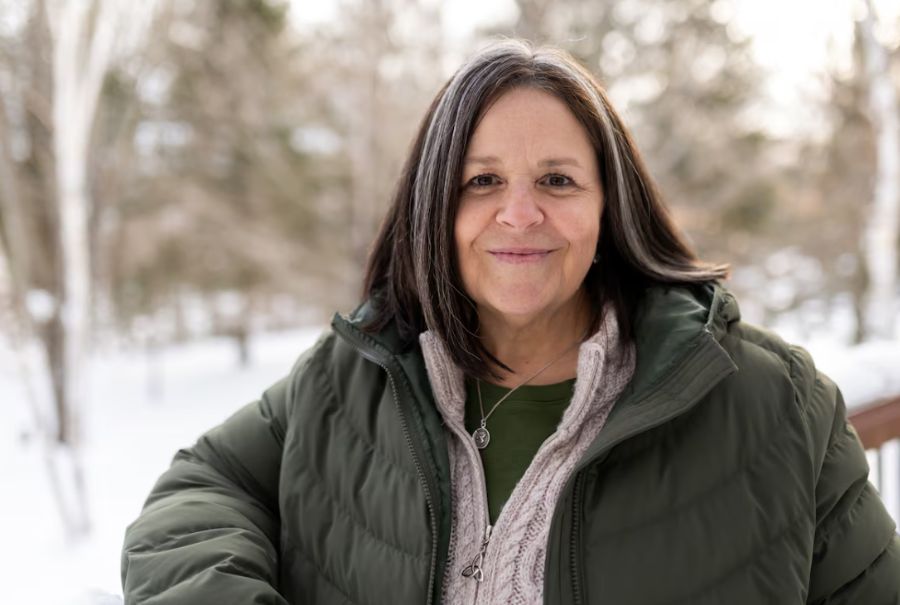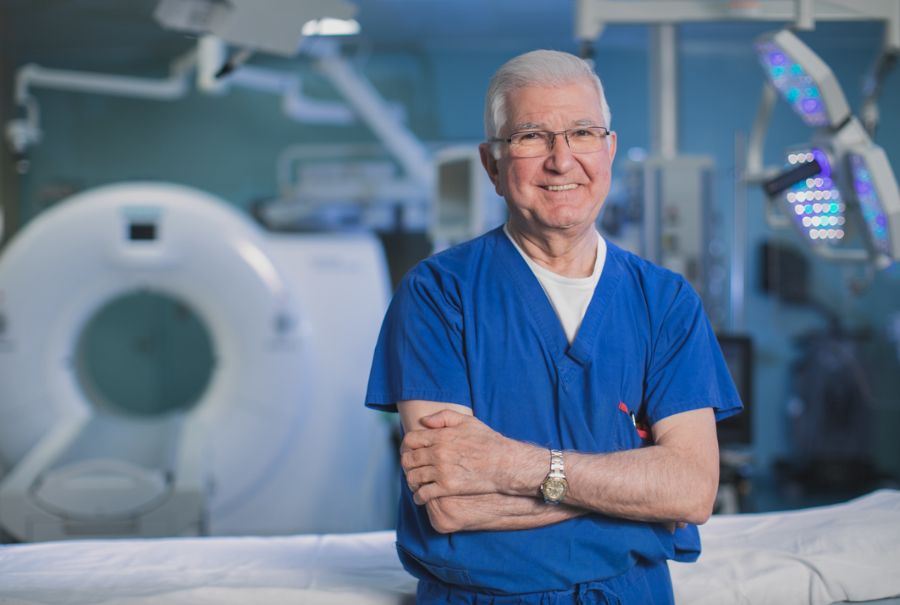Dr. Kathryn Howe won the Wylie Scholar Program in May, a $150,000 three-year career development grant to help fund her research. Photo by Tim Fraser.
An award-winning surgeon-scientist has a plan to stop this disease.
By Bryan Borzykowski
Dr. Kathryn Howe has one mission: to stop strokes related to carotid artery disease. For years, the vascular surgeon in the Sprott Department of Surgery and the Peter Munk Cardiac Centre has been trying to better understand what causes this devastating medical issue and how to prevent it from happening. “I’ve lived through strokes with family, and I would love to have a fix for this,” she says. “A stroke is a terrible event.”
Her research, which looks at how microRNAs – tiny packets of genetic code – influence strokes, is starting to generate attention. In May, she won the Wylie Scholar Program, a $150,000 three-year career development grant to help fund her research. This prestigious award is given out to a doctor who has demonstrated aptitude in vascular research, leadership and promise in vascular surgery. “I was shocked,” says Dr. Howe, who is one of only three Canadians to receive the prize, all of whom are a part of the Peter Munk Cardiac Centre at UHN. We spoke with Dr. Howe about her research and the grant.
What is your research about?
I’m focused on strokes, which are caused by vulnerable plaques in blood vessels leading to the brain. These plaques misbehave, which can cause a stroke. We want to look at the plaque and know whether it’s stable and someone may never need surgery, or if it could be a problem down the road.
To figure that out, I look at how blood vessels communicate through microRNAs, little packages of genetic code that help regulate cell function. We used to think microRNAs had no function, but we’ve found these packets of genetic code get released by one type of cell and can get swept up by other cells, which then cause these cells to behave differently. By understanding the different microRNAs that get delivered between cells in patients with vulnerable plaques, we hope to find new therapeutic targets to prevent this process – that is, to figure out how to make a plaque stable or prevent it from forming in the first place. Ultimately, we’re trying to predict and prevent strokes caused by vulnerable plaques in the carotid arteries.
So, what’s the problem?
Think of blood vessels as a tree. When the trunk is nice and straight, blood flows in a straight line. Wherever there are branches, you get turbulent flow, and these are the locations we typically see atherosclerotic disease. Now, the cells that line the inside of the blood vessels are exposed to currents that are constantly irritated. The cells that live nearby receive messages from the stressed-out cells to change their behaviour, which can result in a stroke. We want to understand that process.
How are you studying this?
We’re looking at patients who had surgery but didn’t have a stroke beforehand, and then those who have had a stroke, and we compare the two plaques. In patients who haven’t had a stroke, the plaques are stable. If the cells and inflammation stay under control, then the plaque and its contents don’t rupture and go to the brain. By knowing how different clusters of microRNAs lead to plaque vulnerability, maybe we can stop these strokes from happening through new therapeutic targets. Detect these things in advance, and we can say, “This person is at risk of a stroke.”
How will the grant help?
It’s for people in the early phases of their career, where they aren’t ready to publish and need more funds for research. This grant allows us to accelerate our research, perform cutting-edge experiments and be competitive in an area where people are doing research with large grants. Being at Sprott Surgery and the Peter Munk Cardiac Centre has helped launch my career – there’s nowhere in Canada I could do this kind of research and be supported clinically.
This article originally appeared in the Sprott Department of Surgery magazine.


